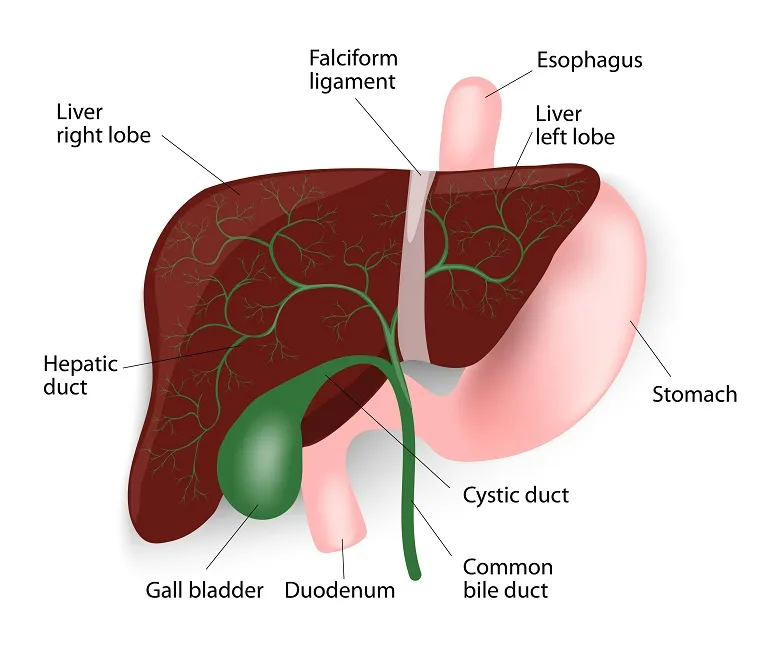Your liver, one of the largest and most vital organs in your body, performs countless critical tasks. From detoxifying harmful substances to aiding digestion and storing essential nutrients, the liver is a powerhouse of metabolic activity. However, when the liver doesn’t function properly, it can lead to a cascade of health issues, including toxin buildup in fatty tissues, which compromises overall well-being. Recognizing the warning signs of liver dysfunction and taking proactive steps to support liver health is essential.

The Role of the Liver in Your Health
The liver is central to detoxifying your body and ensuring that toxins do not accumulate. When the liver’s function becomes sluggish, toxins may build up in your fatty tissues, creating an environment ripe for diseases, including cancer. Furthermore, the liver is integral to digestion, nutrient storage, and metabolic regulation. A compromised liver can affect everything from your energy levels to your skin health and hormonal balance.
To maintain your overall health, it’s crucial to keep your liver functioning at optimal levels.
16 Warning Signs of a Dysfunctional Liver
If your liver isn’t working efficiently, it can send out distress signals. Here are the warning signs to watch for:
1. Chronic Fatigue
Feeling constantly tired or fatigued may indicate that your liver is struggling to clear toxins from your bloodstream.
2. Lethargy
A lack of energy and sluggishness often accompany liver dysfunction.
3. Anxiety and Depression
The liver’s role in hormone regulation can impact your mood, leading to anxiety or depressive symptoms.
4. Improper Digestion
Digestive issues like indigestion, bloating, or acid reflux may signal an overburdened liver.
5. Headaches
Frequent headaches can be a symptom of toxin buildup affecting your nervous system.
6. Chronic Muscle and Joint Pain
Unexplained aches and pains may be linked to an overwhelmed liver.
7. Acne and Other Skin Conditions
Skin issues, including acne, rashes, or itchiness, can arise due to toxin accumulation in the body.
8. Gas, Bloating, Abdominal Pain, Diarrhea, or Constipation
Digestive discomfort often points to liver inefficiency.
9. Hormonal Imbalance
The liver plays a key role in processing hormones; dysfunction can lead to imbalances.
10. Weight Gain
Difficulty losing weight, even with diet and exercise, may indicate a sluggish liver.
11. Persistent Nausea or Vomiting
A malfunctioning liver may struggle to regulate digestive processes, leading to nausea.
12. Yellowing of the Skin or Eyes (Jaundice)
This classic sign occurs when bilirubin builds up in the body due to liver issues.
13. Dark Urine and Pale Stools
Changes in urine and stool color can indicate bile flow problems linked to liver health.
14. Swelling in the Abdomen or Legs
Fluid retention in these areas may signify liver disease.
15. Bruising Easily
A reduced ability to clot blood may indicate liver damage.
16. Bad Breath (Fetor Hepaticus)
A telltale sign of advanced liver disease, this occurs when toxins affect the respiratory system.
How to Support Liver Health
If you suspect your liver may not be functioning optimally, adopting healthy habits and making dietary changes can make a significant difference.
1. Stay Hydrated
Drinking plenty of water helps flush toxins and supports liver function.
2. Choose Organic Foods
Organic foods are free from harmful pesticides and toxins, reducing the liver’s workload.
3. Focus on Whole Foods
A diet rich in whole foods, including vegetables, fruits, grains, and proteins, supports liver health.
4. Avoid Inflammatory Oils
Eliminate vegetable oils like canola, corn, and soybean oil from your diet.
5. Increase Healthy Fats
Incorporate avocados, olive oil, and nuts into your meals to provide your liver with beneficial fats.
6. Cut Refined Sugars
Reducing your sugar intake lowers the risk of fatty liver disease.
7. Boost Dietary Fiber
Foods like chia seeds, artichokes, and broccoli aid digestion and support detoxification.
8. Limit Fructose
Aim to consume less than 20g of fructose per day to protect your liver.
9. Eat Leafy Greens
Spinach, kale, and other greens provide essential nutrients like magnesium and folate for liver health.
10. Reduce Alcohol Intake
Alcohol places significant strain on the liver; cutting back or eliminating it can have immediate benefits.
11. Include Sulfur-Rich Foods
Onions, garlic, and asparagus are rich in sulfur, which supports liver detoxification pathways.
Natural Ingredients to Boost Liver Function
Some specific ingredients can significantly enhance liver health:
Artichokes
Packed with antioxidants and fiber, artichokes help protect and improve liver function.
Turmeric
This spice is rich in anti-inflammatory and antioxidant properties, shielding the liver from damage.
Milk Thistle
Known for its antiviral and anti-inflammatory benefits, milk thistle is a powerhouse for liver health, especially in combating toxins, viruses, and alcohol-related damage.
Your liver is essential to your overall health, and recognizing early warning signs of dysfunction is key to preventing further damage. By adopting healthy habits, making smart dietary choices, and incorporating liver-supportive ingredients, you can ensure your liver functions at its best.
FAQs
1. What are the main causes of liver dysfunction?
Liver dysfunction can result from excessive alcohol consumption, a poor diet, viral infections like hepatitis, obesity, and prolonged exposure to toxins or medications.
2. How can I naturally detox my liver?
You can support liver detox by drinking water, eating a balanced diet rich in fiber and leafy greens, avoiding processed foods, and incorporating ingredients like turmeric, artichokes, and milk thistle.
3. Are liver cleanses safe?
While many liver cleanses claim to offer quick detox solutions, it’s best to support liver health through sustainable lifestyle changes and consult a healthcare professional for personalized advice.
4. Can liver dysfunction cause weight gain?
Yes, a sluggish liver can lead to difficulty metabolizing fats and toxins, contributing to weight gain or challenges in losing weight.
5. What foods should I avoid for a healthy liver?
Avoid refined sugars, processed foods, alcohol, and inflammatory oils like canola and soybean oil to reduce strain on the liver.




